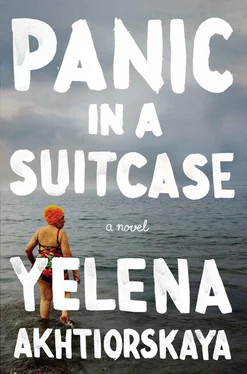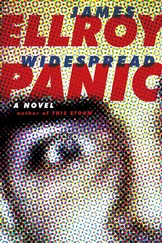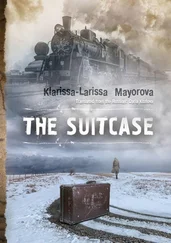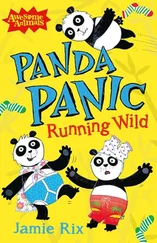Run! screamed Marina, and herself did just that. Blazing the trail, undoubtedly. But she didn’t turn around once, and unlike Esther she didn’t have a second pair of eyes installed in the back of her head. Crossing the boardwalk, they doubled over, struggling to secure each step, gripping their heads lest they, too, should blow away like the countless plastic bags. At a critical moment, Esther outran Marina, swerving into a nearby nursing home. The steamy lobby was packed with drenched, shaken beachgoers seeking refuge. A drowsy security guard made it known that she wasn’t pleased. Over her head a banner drooped — FABULOUS AT 90! HAPPY BIRTHDAY ALICE! A paper plate with a picked-at slice of triple-layer cake was being eyed by so many that she slid it into a drawer and turned the key.
Just in time, said Marina, taking a deep breath and checking to see what was clutched in her hands: a pair of giant denim shorts and an unfamiliar towel.
Have you seen Frida? asked Esther.
Marina gasped. People turned to look. My daughter, said Marina. She began inspecting small faces in the vicinity — they were strangers’ children, almost hers. They shrank away from her fierce stare, not wanting to be recognized. Marina ran through the lobby, taking a harder look at anything with the potential to transform into Frida.
Boo! cried Frida, crawling out from under a marble table. Catching sight of her mother’s face, she began crawling in reverse, seeking the shelter of the stone. But she couldn’t move fast enough. Grabbed by the ear, she was dragged to join the rest of the family.
Remember you have just one mother, said Marina. Better not rush her to the grave! Though Marina had grown up with such reminders from her own mother, she could never get the tone quite right herself.
They finally settled in to watch. The gods were redecorating.
Two years ago in Denver, Oregon, was a terrible hailstorm, said Levik. This storm caused almost seven hundred million dollars’ damage. People think storms aren’t dangerous, but even small storms are very dangerous. He swallowed. Did Pasha go to the restroom? I wouldn’t mind myself.
Pasha! They hadn’t seen him since… Esther bolted outside, immediately thrust flat against the door. A young man with quick reflexes managed to tug her back in. She couldn’t steady her breathing — not enough air in that tight space to fill her breast. The security guard unenthusiastically relinquished her swivel chair, and Robert lowered Esther into it. Here they were, sweaty, in T-shirts on top of drenched bathing suits, huddled in the lobby of a nursing home. The storm pressed right up to the building. Windows trembled in keeping out the weight. It became black as night, the atmosphere thick and interwoven like a muscle. Along the sinews, threads of electricity traveled.
Aside from everything else they were feeling — worry, guilt, clamminess, a spreading itch — they felt betrayed. There was no way to address this feeling, nobody to yell at. It was foolish, senseless. Having been born and raised by the sea, they hoped that an allegiance had been established. They hoped by asserting, by claiming to be a coastal breed. They were people of the margin, of the edge of the land. If destiny wasn’t mentioned, it was meant. Inland folk weren’t expected to understand the distinction, just respect it. The particular body of water didn’t matter — coastal peoples from across the globe knew when they were among their kind. They dealt in axioms. They were spoiled for any other type of existence. The power of the ocean wasn’t questioned. Aquatic mystery was steady stock, safe to invest in. Living by the ocean was like going to third grade with someone who went on to become world-famous. The relationship became an integral part of one’s identity. That the ocean never entered into the agreement was forgotten until a reminder was issued.
The storm had a Slavic temperament. It arrived with great force, bells and whistles, but burned itself out in less than half an hour — the vending machine didn’t run out of Coke, the security guard wasn’t used for meat (she had plenty). Upon return the sun shone brighter than before in compensation or apology or in an attempt to lure back the masses. Only degenerates and conspiratorial herds of pimply boys were enticed. Tousled neighbors poured out of building lobbies. What in the world, they said. Never before — a first! A tornado here ? They hurried home, where, though it was very hot, they made gallons of steaming borscht as if to concoct the atmosphere in their beloved Soviet vats.
Emerging from the nursing home, they observed the river of people drifting away from the beach. Then they inhaled and pushed against the current, shoulders colliding and feet stomping. They managed to squeeze up one bottlenecked ramp, then helped one another climb over the railing to forgo another. They walked slowly, and even though they could see from a distance that no one was there, they didn’t stop until reaching the exact spot where they’d been sitting. Marina flagged down a lifeguard resuming his post, but her tongue tangled. Too frantic for sense. Robert went straight with an appeal to the ocean. Did it have his son’s body, and if so would it kindly return it in any shape or form?
Luck, usually so elusive, was in their favor. Levik in his search stumbled upon a gold Rolex, the clasp broken, camouflaged, sticking out of the sand, while Frida, sitting in a foul mood on a jagged rock near the jetty, pointed limply to a figure one bay away.
That he was actually there was a shock. What did they expect? Maybe what they were used to — Pasha in Odessa, keeping guard over their memories. Not all six feet, three inches of him staggering disoriented and pigeon-toed in the midst of their sand. They were still yards away when he began to relate that under the boardwalk was an entire city. Tents, upside-down garbage cans, a mattress and a stove, he said, evidently unaware that he’d been separated from his swimming trunks. His figure was as unobstructed as the horizon (though on the Steeplechase pier, the fishermen, as if glued to the railing, were back to sipping from their long straws). His nakedness wasn’t startling — Pasha hardly relied on the basic buffering that garments afforded, not at all on the various boosts. Clothes detracted from his quiddity. In the nude he was uncompromised. Esther approached from behind, wrapped a towel around his rubbery hips.
A homeless enclave, he said, intricate, set up just like—
Was there a flash? asked Esther.
A flash, said Pasha.
He was struck!
Don’t shout.
He doesn’t look struck. We did just get a good look.
Are you hurt, Pasha?
They were very nice, actually, he said.
But maybe, said Esther, pointing to her head.
Robert cleared his throat. Chin raised, eyelids lowered, he dropped his voice an octave to recite, The tempest spreads a mist across the sky / frosty whirlwinds spinning wild.
Like a beast it begins to howl / now it cries like a lost child, said Pasha.
Let’s drink, dear friend / to my poor, exhausted youth.
THEY HAD LANDED IN AMERICA in the middle of a heat wave, temperatures soaring into the hundreds, the streets streaked with fire trucks and ambulances, shabby businessmen, water-selling opportunists. A blackout was wreaking havoc on the outer boroughs to which they didn’t yet know they belonged. Greeted at the airport by friends and relatives whose faces were incorrect in the flesh. These people were all arms anyway, gripping, squeezing, strangling, gesturing, and yanking them out of the frenzied arrivals area. It was night. They were distributed into two cars and taken by way of roads so potholed and fractured it was hard to believe they’d gone in the right direction on the three-rung world ladder to a low-ceilinged apartment with vicious air-conditioning. Sweat beads frozen off, sinuses excavated. The food on the table was identical to the food on the table in the kitchen in the apartment in the building in the city in the oblast in the republic in the Union they were prepared to never see again. But the table looked the same, faded oilcloth from the shop off Pushkin Street (they had the same one in their suitcase), as did the buttery pelmeni, vareniki in cherry sauce, brick of black bread, dill potatoes, cream herring — identical if a bit more gray and deflated, as the spread had been left out ceremoniously while the greeters, Levik’s father and stepmother, waited for them to clear customs. Everyone was ravenous except them, who claimed to have eaten on the flight. They were pale, emaciated, dazed. Toasts were raised in a perfunctory spirit. Exhaustion and fright appeared to win out over the magnificence of a soul reunion. Marina put her daughter and her brand-new Barbie to bed. A cigarette disappeared in two puffs. She excused herself to use the bathroom. Half an hour later, Levik’s stepmother found her in the bathtub sobbing noiselessly. The friends left hours earlier than planned, looking out car windows on their drives back to Long Island, knowing that they’d also been like that not too long ago but finding it impossible to imagine.
Читать дальше












